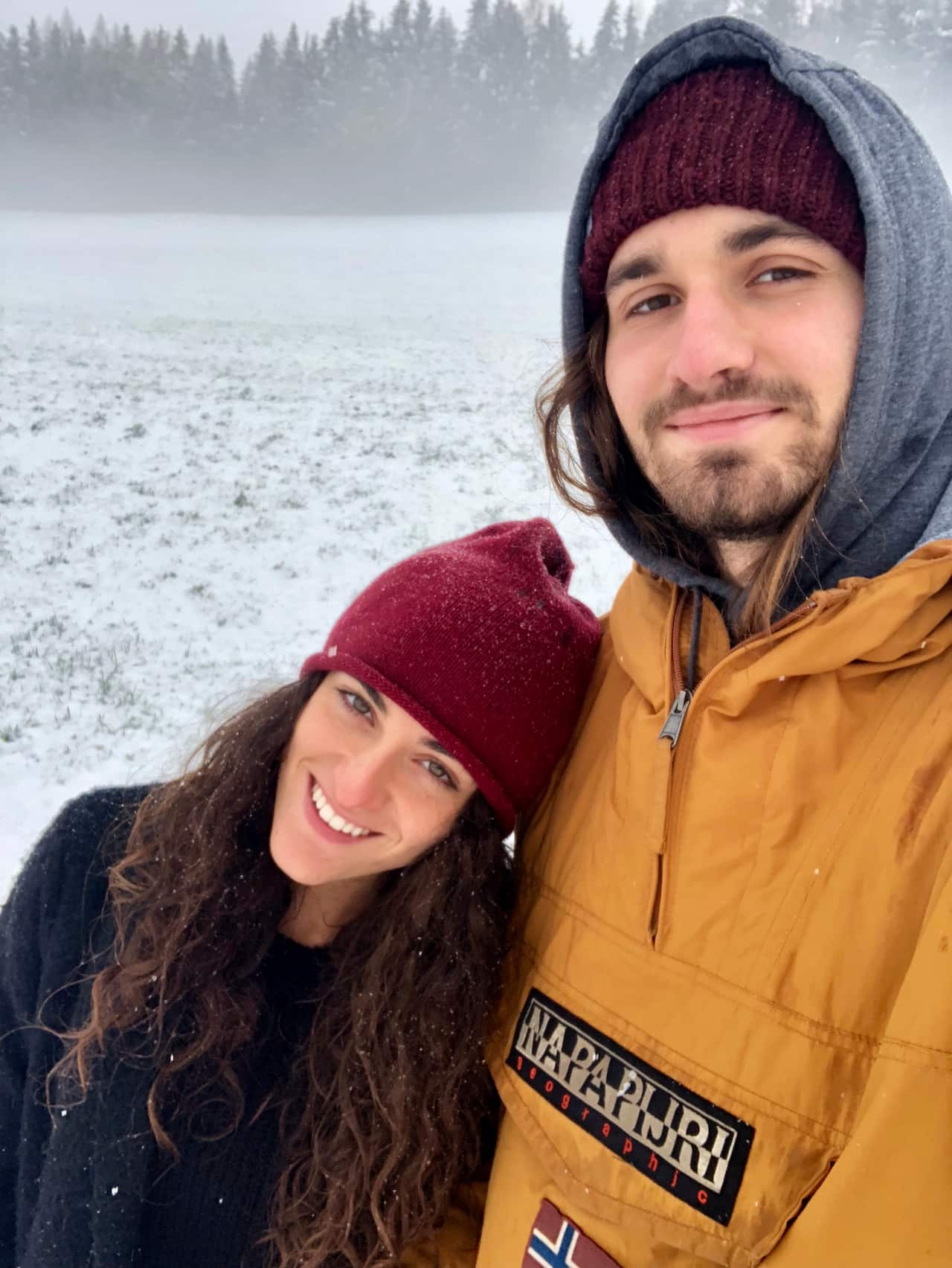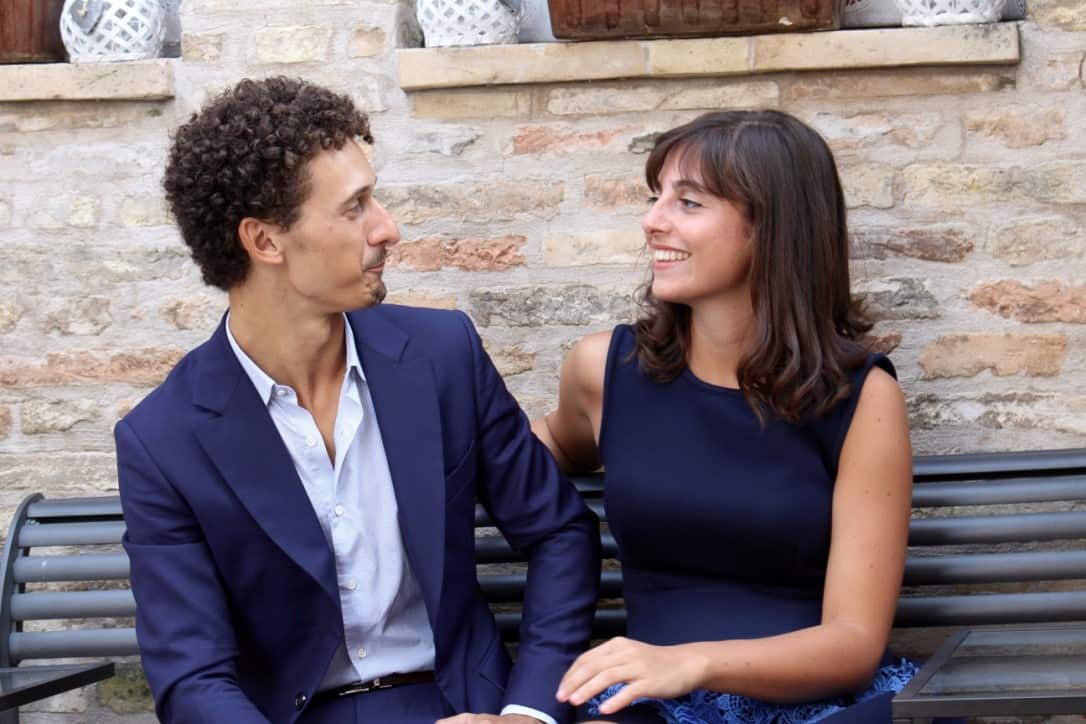In 2017, Margherita went on a university exchange to Portugal where she was put in a house with 12 other people, of all different nationalities. For this 25-year-old native Italian speaker, what started off as a fling with her German-speaking Austrian housemate, Adrian, gradually turned into what has now become a four-year relationship.
Before going to Portugal, Margherita thought she wouldn’t want a relationship with someone who wasn’t Italian and who didn’t speak her language. “But this experience has completely changed my perspective,” she said.
Margherita’s initial hesitation is not uncommon, according to Cindy Gallois, a professor of psychology at the University of Queensland.
“Words are pretty important in all relationships...especially if we come from Western cultures where we put a lot of value on words and explaining,” she said.

Despite her initial fears, Margherita said the language gap between her and Adrian has proved less significant.
“Adrian is paradoxically the boyfriend with whom I communicate the most compared to all my previous partners...because I know that he accepts, appreciates and loves me for who I am.”
Margherita believes that not having the same language is not necessarily a limitation to entering a relationship. She said they are happy speaking their “own strange mix of languages” which they have created using some Italian, some German and mostly English words.
Gallois said couples will develop a private way of speaking or a private code.
“You can do that within one language but you can also do it across languages. One thing bilinguals do...[is] they’ll switch codes all the time. They’ll say a sentence half in one language, half in another.”
In romantic relationships...there’s a rule that came out of linguistics called ‘let it pass’...If it’s a good relationship that tends to be what people do.
Léa, 28, met her partner Andrea, 30, while they were both doing their Masters in France. Léa was only one of four French students in a class of 40. Andrea, being of Italian background, could not speak French, so they naturally resorted to speaking English. Andrea refers to English as a “third-party language,” as both he and Léa feel more comfortable using their own native languages. This poses difficulties when it comes to expressing deep emotions.
Andrea remembers a particular instance when they were having an intimate conversation about him potentially moving to Senegal, which is where Léa was working at the time. “I was not really able to make her understand...what it was my feeling toward moving [sic],” he said.
In hindsight, Andrea realises that the commitment to learning the other person’s language is more than simply learning the grammar structures and vocabulary. “I think that would have been showing more commitment toward each other....In the end, you are saying I tried to know you better, I tried to know your culture better.”
According to Lea, not arguing because of the potential difficulties was not an option. “We have three languages, we definitely get there in the end!”
Léa and Andrea attribute the strength of their relationship to finding things in common to compensate for the difference in language. “We like going rock climbing, skiing, eating and appreciating good food...which is very ingrained in both [of our] cultures.”
Unlike Margherita and Léa, 27-year-old Sofia from Italy struggled a lot at the beginning of her relationship with Alex. Although she did speak some French, she always felt inadequate compared to Alex who spoke it as his first language.

But that is partly what attracted her to him. Having always been fascinated with France and French culture, she admits that she probably wouldn’t have gone out with him if he weren’t French.
What started off as a language-learning pursuit slowly turned into a serious relationship. But even basic conversing could feel cumbersome when she was tired, angry or stressed, meaning that she would give up on certain conversations, to avoid having to explain herself. Ironically, Gallois sees this as an indicator of a strong relationship.
“In romantic relationships...there’s a rule that came out of linguistics called ‘let it pass’...If it’s a good relationship that tends to be what people do.”
The inability to fully express herself led Sofia to think there was something missing and that Alex didn’t really know her fully. It took a trip to Italy with Alex to change that. “When he came to Italy he was shocked to see how different I was in my own surroundings. He told me that he noticed I was much more self-confident and chatty, so it’s definitely a different perception to what he had when I speak in French.”
Gallois stresses the importance of language in “codifying a culture.” Barrière de la langue, meaning language barrier, is the codeword that Sofia uses to end a discussion with Alex as they realise the futility of discussing things that are “impossible to talk about with someone who doesn’t share your culture.” This rule goes for “even stupid things, for example we hear a tune on the radio that reminds me of my childhood...There are all these little things that you can’t share...either someone gets them straight away or they lose their meaning,”she said.
Interviews with Margherita and Sofia were conducted in Italian, while the interview with Léa was conducted in French. All three of them were translated into English by Anushri Sood.
Insight is Australia's leading forum for debate and powerful first-person stories offering a unique perspective on the way we live. Read more about Insight
Have a story or comment? Contact Us


